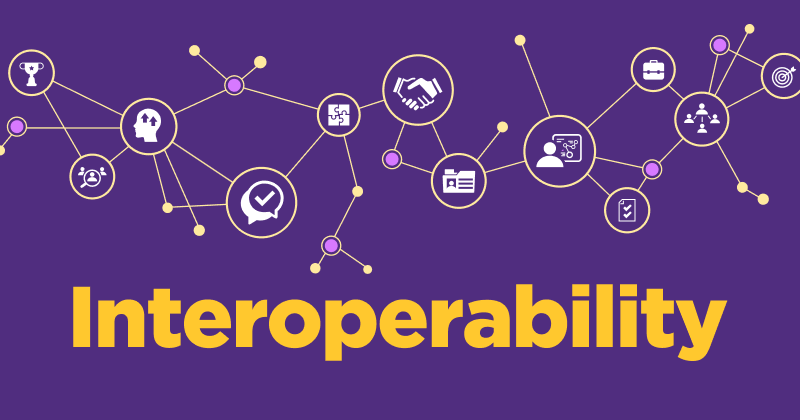Interoperability in Urology: Data Exchange for More Efficient Patient Care

Learn how seamless information sharing can support your practice’s operations
Interoperability is key to seamless data exchange and collaboration between urologists, other providers and payers. In some instances, interoperability is required by regulation. For many urologists, though, interoperability goes beyond compliance, emerging as a key way to break down data silos and provide quality care across the patient journey.
As your practice’s connectivity grows, other efficiencies may arise, too. Secure data sharing can result in faster, more consistent delivery of information and reduced burden on staff, who may otherwise have to request and filter through records manually.
Here, we’ll explore how advanced interoperability can help drive performance at your urology practice.
What is interoperability in urology?
Interoperability is the ability of different information technology systems and networks to communicate and exchange data accurately and effectively.
In healthcare, interoperability refers to the ability of electronic health record (EHR) and other systems to share patient data.
Data may be shared between other healthcare providers, like hospitals, labs and other practices. It may also be shared with payers, including Medicare, Medicaid and insurers.
Specialty-specific urology EHR by ModMed is designed to achieve interoperability with other healthcare systems, allowing practices to perform the following tasks quickly and easily:
- Send and receive electronic referrals
- Exchange lab results electronically
- Access patient data from other providers
- Share patient data securely
For more on seamless data exchange, you can explore our ModMed synapSYS solutions.
Fostering Better Patient Care
One of the ultimate goals of healthcare interoperability is improving patient care.
By making data more easily accessible across providers, interoperability enables a broad view of patient data that can help urologists make more informed and timely decisions.
Access to real-time patient information, including medical history, medications and test results, allows more personalized and coordinated care. This may help:
- Promote continuity of care across healthcare settings, ensuring that vital information follows patients wherever they go
- Provide crucial information when providers are busy with multiple patients, sometimes as many as thousands at a time
- Manage chronic conditions that require testing and treatment over long periods of time and multiple providers
Interoperability may also help urologists manage patient populations more effectively. By analyzing patient demographics, health outcome data and other metrics, urologists may be able to identify areas for improvement and develop targeted interventions to improve patient outcomes.
Discovering new strategies this way requires the kind of comprehensive, high-quality data visibility that interoperability can help provide.
Optimizing Practice Efficiency
Interoperability may also unlock the potential for significant efficiency improvements at your urology practice.
By streamlining workflows and reducing administrative burden, interoperability may improve care coordination, enabling faster decision-making and minimizing errors arising from incomplete or inaccurate information. It may also free up valuable provider time.
For example, a urologist seeing a referred patient for the first time may not have a list of medications for the patient, so the physician may import and reconcile a summary of care with a list of the patient’s current medications.
From this health information, the urologist could see that the referring physician has already tried a specific line of therapy for a given duration, so the urologist can make informed decisions about what to try next.
More generally, much of urologic care is driven by data and results. Patients may obtain labs, images and evaluations at multiple locations, especially in emergency situations.
Expanding Your Interoperability
By breaking down information barriers and facilitating secure data exchange, interoperability may elevate patient care and practice efficiency. The ability to access comprehensive patient information seamlessly may transform the delivery of urology care, enabling well informed decisions and coordinated care.
As urology evolves, investing in interoperable systems and fostering collaboration across providers and partners may be key to realizing the full potential of healthcare data. For more on how ModMed can drive interoperability, book a demo.
This blog is intended for informational purposes only and does not constitute legal or medical advice. Please consult with your legal counsel and other qualified advisors to ensure compliance with applicable laws, regulations and standards.


